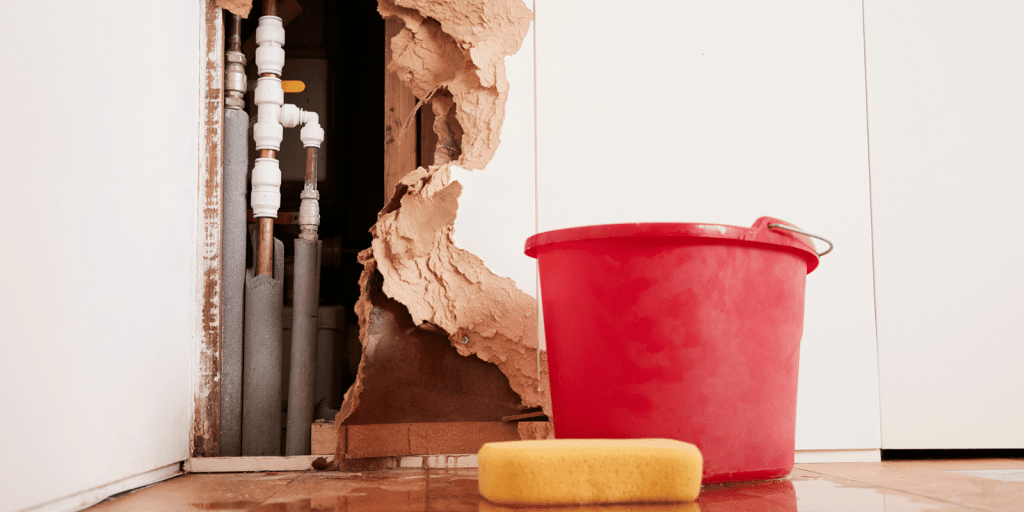Unplanned repairs can turn out to be very expensive and stressful when you are a homeowner and particularly when there is water damage. Many homeowners seek peace of mind by buying home warranties.
Let us get into the subject matter to find what is covered, what is not, and how you can guard your house against expensive surprises.
What Is a Home Warranty?
A home warranty is a service contract that assists in meeting the expenses of repairing or replacing the key systems and appliances in the home that fail because of standard wear and tear.
This is unlike homeowner’s insurance that will cover damages that are caused by unforeseen causes such as fire, storm, or theft.
What Is Generally Covered by a Home Warranty?
The Common Home Warranty Covers:
- HVAC (heating, ventilation, and air conditioning)
- Electrical systems
- Plumbing systems
- Water heaters
- Electrical appliances (such as dishwashers, ovens, refrigerators)
- Washer and dryer
This is all dependent on the type of warranties, provider, and plan you select.
What Is Water Damage?
Water damage is the destruction or damage of a home that results because of water intrusion where it is not supposed to be.
It Can Result from:
- Leaking or burst pipes
- Overcrowded toilets or bath tubs
- Roof leaks
- Flooding
- Malfunctioning gadgets such as washers or water heaters
- Sewer backups
Water damage may be costly to repair—sometimes up to thousands of dollars. That is why it is essential to know whether your home warranty will cover it or not.
Does a Home Warranty Cover Water Damage?
Short Answer: Usually, No.
Home warranties will, in most instances, not address water damage. However, they can reimburse the cost of repairing or replacing the appliance or system that led to the water damage.
Let’s Break That Down
Example:
In the event that your water heater breaks and leaks water on your floor:
- Home warranty can take care of repairing or replacing the water heater
- It will not include the repairs of the floor or clean-up of water
- The normal homeowner’s insurance would cover the actual damage of the water
What Water Issue-Related Problems Could be Served?
The real water damage may not be covered but some of the causes of the damage may be.
Plumbing System Failures
If a Pipe is Broken by the Wear and Tear:
- Covered: Yes, the repair or replacement of the pipe may be paid
- Exempt: The damage to your drywall, flooring, or furniture
Water Heater Malfunctions
In the Event of Stoppage or Leakage of Your Water Heater:
- Covered: The repair or replacement of the water heater can be covered
- Not Covered: The expense of repairing the water damage or property repair
Leaks in Dishwasher or Washing Machine
- Covered: Yes, the repair of the appliances is probably covered.
- Not Covered: Destruction of cabinets, floor, or walls.

What’s Not Covered by a Home Warranty?
Although all providers are different, most home warranties do not cover the following:
- Water damage recovery or restoration
- Mold remediation
- Roofing leakage (unless you take extra roof coverage)
- Damage due to improper installation or due to non-maintenance
- Nature (such as floods, hurricanes, or earthquakes)
Homeowner’s insurance comes into play here. In case of water damage due to storm or flood, it is an insurance claim and not home warranty.
Home Warranty vs Homeowners Insurance: Know the Difference
The distinction between home warranty and homeowner’s insurance is what you should know to understand the protection you are receiving.
Home Warranty
- Makes the repairs and replacements of household systems and appliances because of normal wear and tear
- Covers items such as HVAC units, plumbing, electrical, water heaters, and large appliances
- May cover the cause of a water-related complication (such as a water heater or break with a burst pipe), but not the damage from water
- Normally does not cover property damage, flooring, and personal property
- Roof leaks, well pumps or septic systems, and optional add-ons could be offered
- Best in older houses or when you are concerned that systems may fail at any time
- The warranty company receives a service request and dispatches a technician
Homeowners Insurance
- Insures against unforeseen and unanticipated surprises such as fire, theft, storms, or vandalism
- Protects the contents of your house, possessions, and even temporary living costs in case your house is rendered uninhabitable
- Water damage is covered, provided that it is caused by a covered peril (such as a burst pipe or storm damage)
- Damage from flooding is not covered; you must buy separate flood insurance
- Homeowners insurance is required by most mortgage lenders when you are taking out a loan
- You make a claim to your insurance company and may likely pay a deductible
How to Handle Water Damage in Your Home
If you find water damage, follow these steps:
Step 1: Stop the Source
Switch off the water or unplug the appliance that is causing the problem.
Step 2: Contact Your Home Warranty Company
If the cause of the water damage is covered (broken water heater or broken water pipe), file a claim to have it mended.
Step 3: Call Your Homeowners Insurance
If you damage your floors, walls, or properties, use your insurance.
Step 4: Contact Water Damage Restoration Company
Quick action is critical. Failure to deal with water damage can cause mold, structural damage, and other issues unless it is addressed rapidly.
How to Prevent Water Damage
Try to prevent water damage:
Maintenance Tips:
- Check pipes for leakage
- Flush your hot water tank at least once in a year
- Clean the gutters and down spouts to avoid roof leaks
- Replace old hoses from washing machines and dishwashers
- Check the location of your primary water shutoff valve
An ounce of prevention is better than a pound of cure.


